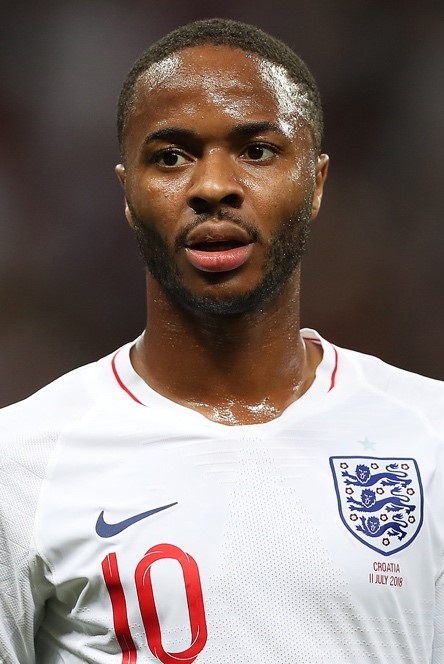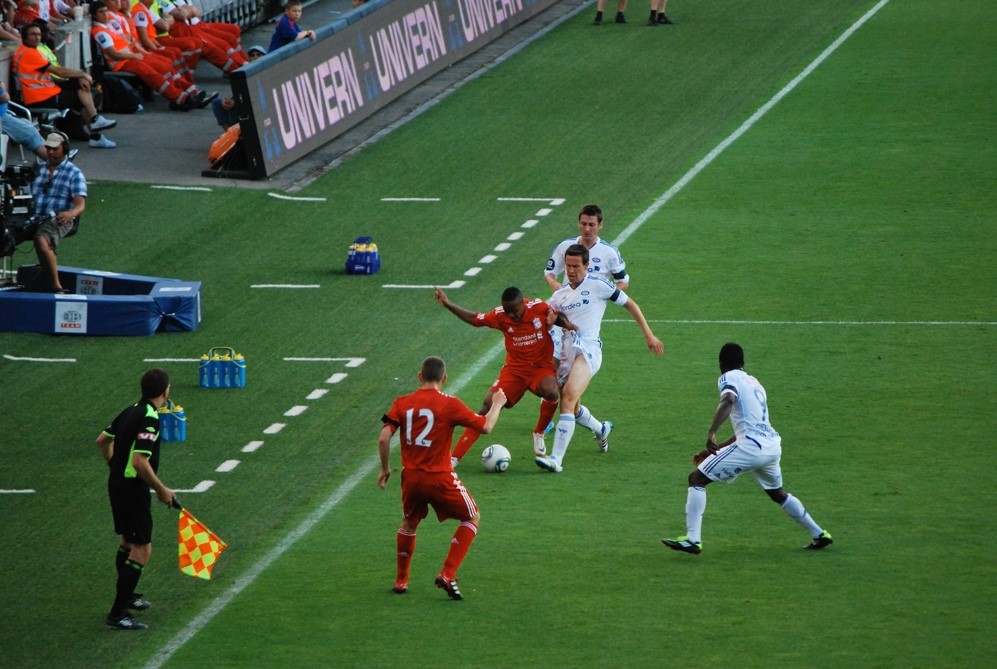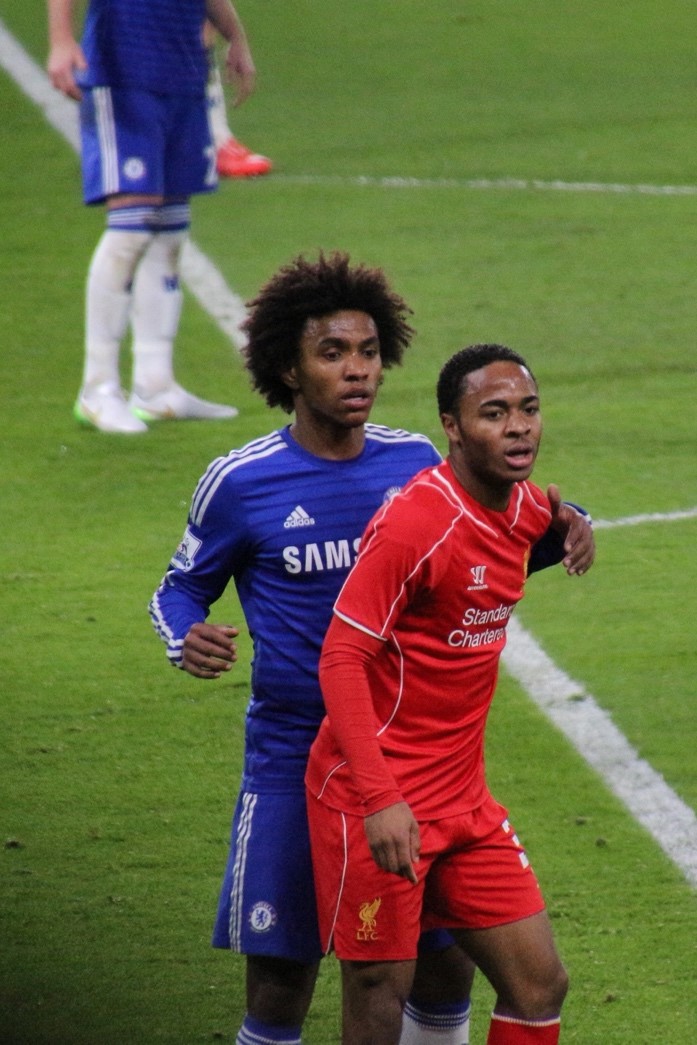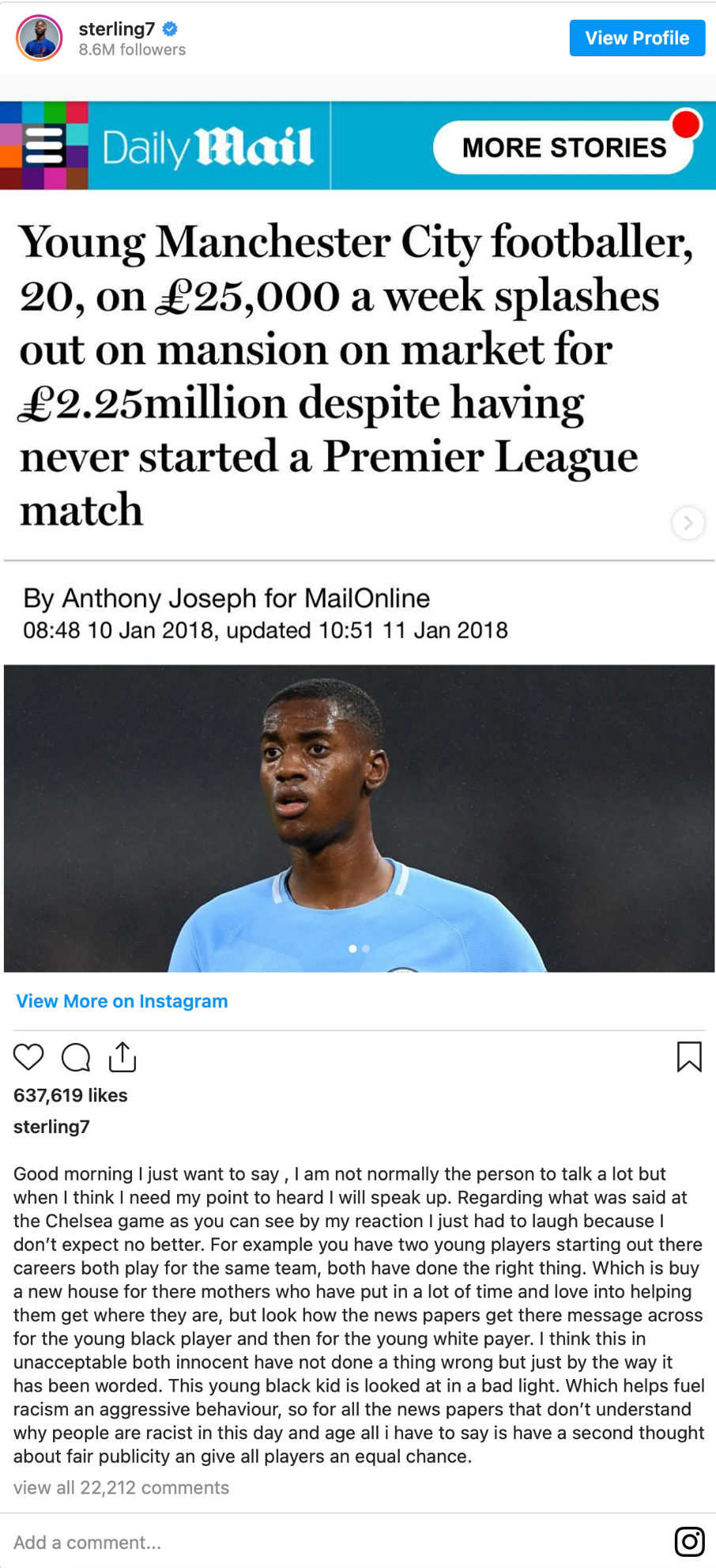One of England’s most esteemed and well respected footballers, Raheem Sterling, is a superb athlete with astounding personal resilience. Born in Kingston, Jamaica, in an area of severe gang violence, Sterling’s exceptional athleticism was most certainly passed down from his mother, Nadine Clarke—a competitive athletics team member of Jamaica’s national team. As for Sterling’s father, he was tragically Three years later at age five, Raheem and his mother moved to London where the footballer’s talent would begin to carry him onto a path of success and fame.
Moving to a small estate in Wembley, Sterling attended the diverse local school, Copland Community School-where over At age ten, Sterling outperformed his peers in local football and was recruited by Queens Park Rangers.
 Image Credit: Wikimedia Commons
Image Credit: Wikimedia Commons
Sterling’s career in Liverpool
Raheem went on to Liverpool at only fifteen years old, initially playing for the club’s youth team. He finished his schooling there, leaving his family behind in London so that he could concentrate on football fully. Previously accustomed to the level of cultural diversity that he saw in Copland Community School, it was upon moving to Liverpool—a majority-white area—that Raheem remembers experiencing racism for the first time. One day on his way home from school, a stranger shouted slurs at him in an incident that broke his naivete regarding the surprising levels of racism in England. In an interview he said, “I didn’t think there was any racism in this country, growing up where I did. I didn’t come across anything like that until then.”
Nevertheless, he overcame any racism or cultural setbacks he experienced. In 2014, he moved on to be named as one of the. Achieving great success in the face of discrimination came to be a recurring theme in Raheem’s career, a situation that would repeat time and again in the years to come.
 Image Credit: Wikimedia Commons
Image Credit: Wikimedia Commons
A new start: Manchester City
In 2015, Sterling was signed by Manchester City in a deal of £49 million, marking the highest transfer fee ever paid for an English player at the time. He helped the team win back-to-back Premiere League titles in 2017 and 2018, was named PFA Premier League Team of the Year, won PFA Young Player of the Year, and FWA Footballer of the Year in 2018-2019.
 Image Credit: Wikimedia Commons
Image Credit: Wikimedia Commons
Sterling’s resilience
In 2017, Sterling was Raheem subsequently released a statement saying, “I didn’t think this type of behavior still happened in this country in this day and age.”
Again, in 2018, Sterling was the victim of racist mocking from a Chelsea fan during one of the club’s matches in London in December of that year. Remarking on his own Instagram, Raheem publicly shrugged off the remarks, declaring “I don’t expect no better.” The incident fueled him to comment on a larger societal issue—the pervasive racism within the media’s representation of black footballers, an issue that is still ongoing. Reposing a headline from the Daily Mail that passed a condescending judgment on the way that black football player Tosin Adarabioyo was spending his money, Raheem highlighted the way that the media frames the fame of the black vs. white athletes. He explained the pattern where media outlets criticize black players, and applaud white players for the very same actions, like spending money to buy a house for one’s mother, as he discussed in a popular Instagram post, shown below.
 Image Source: Daily Mail
Image Source: Daily Mail
An article in GQ magazine discussing Sterling’s claims in his post aptly explained that while some of the stories in the media may not explicitly criticize the Black subjects, there is often an implicit put-down rooted in snobbery, classism, and racism.
Sterling: A vocal advocate for change
In light of the 2020 George Floyd protests, Sterling claimed racism “is the only disease right now” pledging to continue to speak out in an effort to cause lasting change. He said, “this is something that I will continue to do, spark these debates and get people in my industry looking at themselves and thinking what they can do to give people an equal chance in this country.” Sterling has always remained clear that he is open to any comments or critiques about his playing, as long as it is discussing what happens on the pitch. He told an interviewer “anything football related, I’m happy to take it, that’s what I’m here for.” However, anything involving his identity- he was not willing to listen to for more than a second.
But as far as racism, it is clear Sterling will not tolerate that abuse for himself or any of his fellow athletes or citizens. An article in the Manchester Evening News likened Sterling’s behaviour in the face of adversity to the famous saying by Michelle Obama: “When they go low, we go high.” Finally, this year, in honour of his remarkable contributions to racial equality in sports, Sterling was appointed Member of the Order of the British Empire (MBE) in the 2021 Birthday honours.


Michael Melhado says:
Fantastic article and Raheem is a great role model for up and coming Black Footballers who are subject to online and offline racial abuse. His resilience in the storm of the disgusting criticism that he has received is inspiring.